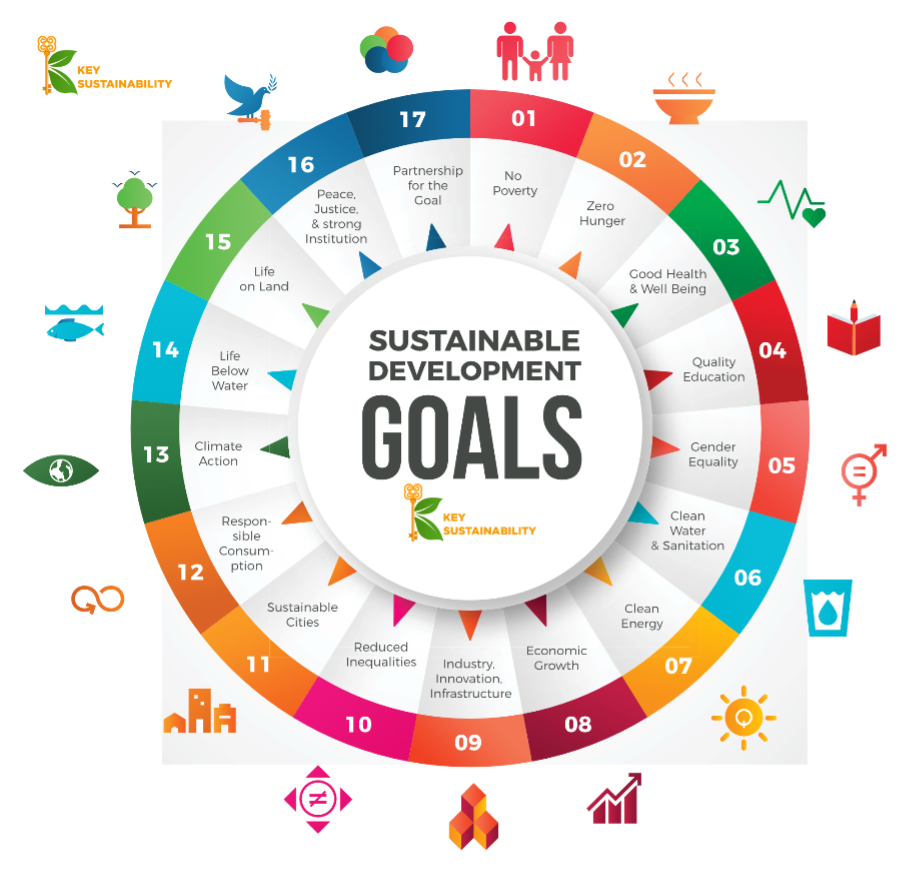Sustainable development is a holistic approach to progress that aims to meet the needs of the present without compromising the ability of future generations to meet their own needs. It recognizes the interdependence of economic prosperity, social equity, and environmental protection.
Core principles
Balancing present and future needs: Decisions made today should not negatively impact the ability of future generations to thrive.
Intergenerational Equity: Each generation has a right to the benefits of past resources and the responsibility to conserve them for the future.
Integration of economic, social, and environmental goals: Policies and actions should consider the interconnectedness of these three pillars of sustainability, ensuring that they are mutually reinforcing.
Precautionary Principle: Taking preventative measures against environmental degradation even when scientific certainty is lacking.
Polluter Pays Principle: Those responsible for pollution bear the costs of its management.
Pillars of sustainable development
Environmental Sustainability: Protecting and managing natural resources, ecosystems, and biodiversity. Key areas include transitioning to renewable energy, promoting sustainable agriculture, minimizing waste, and conserving ecosystems.
Social Sustainability: Promoting social justice, equity, and well-being for all individuals. This involves ensuring access to basic needs like education, healthcare, and employment, reducing inequalities, and fostering inclusive societies.
Economic Sustainability: Fostering long-term economic growth without depleting resources or harming the environment. It emphasizes resource efficiency, innovative technologies, and a shift towards models like the circular economy.
Importance and advantages
Sustainable development offers numerous benefits, including:
Environmental protection: Reducing pollution, conserving biodiversity, and mitigating climate change.
Economic stability: Promoting long-term growth through resource efficiency and innovation.
Social equity: Ensuring fair access to resources and opportunities for all, reducing poverty and inequality.
Improved quality of life: Enhancing living standards by providing access to clean water, healthcare, and education.
Resilience: Building economies and communities that can withstand environmental, social, and economic shocks.
Examples of sustainable development
Renewable Energy: Shifting towards energy sources like solar, wind, and hydropower reduces dependence on fossil fuels and greenhouse gas emissions.
Sustainable Agriculture: Practices like crop rotation and organic farming enhance soil health, conserve water, and reduce reliance on harmful chemicals.
Circular Economy: Emphasizing reuse, repair, and recycling to minimize waste and maximize resource utilization.
Green Building Materials: Developing and using eco-friendly building materials like bamboo or recycled plastic.
Sustainable Transport: Investing in public transportation, promoting cycling and walking, and transitioning to electric vehicles reduces emissions and traffic congestion.
Challenges and future directions
Despite growing awareness, achieving sustainable development faces significant challenges including:
Poverty and inequality: These issues hinder progress across various Sustainable Development Goals (SDGs).
Environmental degradation: Ongoing issues like deforestation, pollution, and climate change.
Economic volatility: Global economic downturns can impact sustainability efforts.
Technological and financial gaps: Limited access to modern technologies and funding in developing nations.
Overcoming these challenges requires a concerted global effort, including:
Strong policies and regulations: Governments playing a crucial role in creating an enabling environment for sustainable practices.
Investment and innovation: Mobilizing resources and developing new technologies for sustainable solutions.
Education and awareness: Fostering a culture of sustainability among individuals, communities, and businesses.
International cooperation: Collaborating across borders to address global challenges like climate change.
Sustainable development is a complex but crucial endeavor. By embracing a holistic approach and working together, a future where both people and the planet can thrive can be created.

